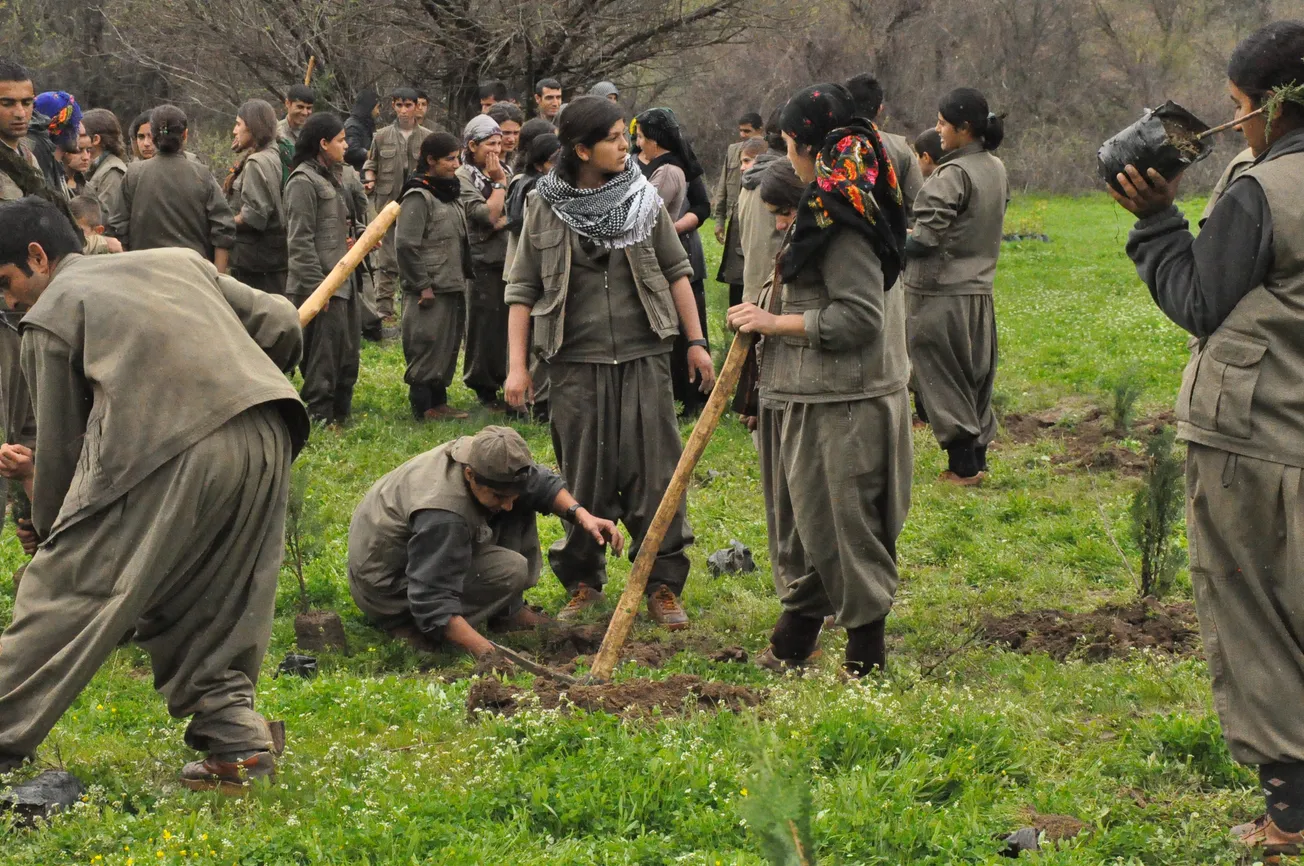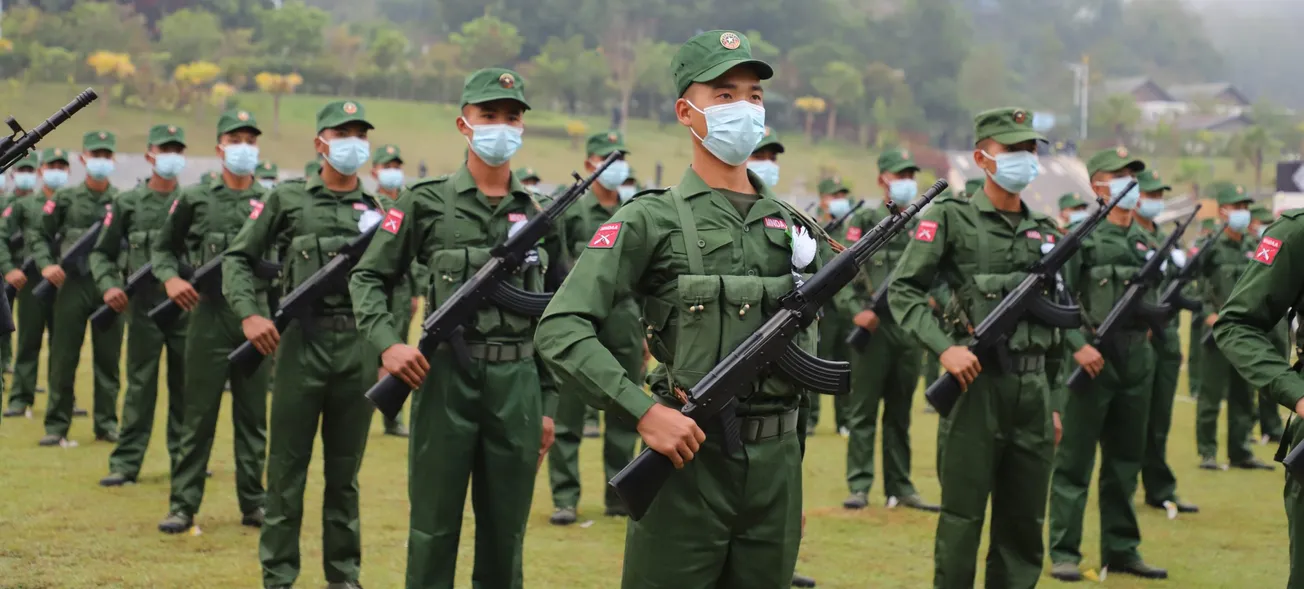Overview
Boko Haram, officially known as Jamā'at Ahl as-Sunnah lid-Da'wah wa'l-Jihād (Group of the People of Sunnah for Dawah and Jihad), is a Salafi-jihadist insurgent group primarily operating in northeastern Nigeria and the Lake Chad Basin region. Founded in 2002, the group has evolved into one of the deadliest armed organizations in Africa, responsible for tens of thousands of deaths and the displacement of millions. Boko Haram's stated goal is to overthrow the secular Nigerian government and establish an Islamic state governed by a strict interpretation of Sharia law.
The group gained international notoriety in 2014 after kidnapping 276 schoolgirls from Chibok, Borno State, sparking the global #BringBackOurGirls campaign. Since then, Boko Haram has continued to pose a significant threat to regional stability, despite facing military pressure from Nigerian forces and the Multinational Joint Task Force (MNJTF).
History
Boko Haram's origins can be traced to the early 2000s in Maiduguri, the capital of Borno State:
- Formation (2002): Mohammed Yusuf founded the sect that would become Boko Haram, establishing a religious complex and school that attracted poor Muslim families.
- Early Operations (2009): The group launched its first major uprising in July 2009, leading to a violent crackdown by Nigerian security forces that resulted in the death of Yusuf and hundreds of his followers.
- Resurgence (2010-2015): Under the leadership of Abubakar Shekau, Boko Haram intensified its insurgency, carrying out numerous attacks on civilian and government targets.
- Territorial Control (2014-2015): The group seized significant territory in northeastern Nigeria, declaring a caliphate.
- Pledge to ISIS (2015): Shekau pledged allegiance to the Islamic State, leading to the group's rebranding as the Islamic State West Africa Province (ISWAP).
- Factional Split (2016): Internal disagreements led to a split, with the emergence of two main factions: Shekau's JAS (Jama'atu Ahlis Sunna Lidda'adati wal-Jihad) and ISWAP led by Abu Musab al-Barnawi.
- Recent Developments (2021-2025): Despite military pressure, Boko Haram has shown resilience, expanding its operations and continuing to pose a significant threat to regional security.
Key Characteristics
- Ideological Foundation: Boko Haram adheres to a radical interpretation of Salafi-jihadism, rejecting Western education and secular governance.
- Anti-Western Stance: The group's name, colloquially translated as "Western education is forbidden," reflects its opposition to Western influences.
- Territorial Ambitions: Boko Haram seeks to establish an Islamic state in northeastern Nigeria and parts of neighboring countries.
- Transnational Operations: While primarily based in Nigeria, the group has conducted attacks in Chad, Niger, and Cameroon.
- Factional Nature: The movement is divided into multiple factions, primarily JAS and ISWAP, with differing tactics and levels of brutality.
- Use of Child Soldiers: Boko Haram has a history of recruiting and using child soldiers, particularly for suicide bombings.
- Economic Entrenchment: The group has developed significant economic interests in the border regions, including involvement in timber, gold mining, and agriculture.
Key People/Actors
- Mohammed Yusuf (deceased): Founder of Boko Haram, killed in 2009 during a government crackdown.
- Abubakar Shekau (deceased): Long-time leader of Boko Haram who led the group's most violent period. Reportedly killed in 2021 during clashes with ISWAP.
- Abu Musab al-Barnawi: Former leader of ISWAP, appointed by ISIS in 2016.
- Musa Baluku: Current leader of the JAS faction as of 2024.
- Mamman Nur (deceased): A key ideologue and former third-in-command under Yusuf, played a significant role in connecting Boko Haram to international jihadist networks.
- Khalid al-Barnawi: Associated with Ansaru, a Boko Haram splinter group with connections to al-Qaeda in the Islamic Maghreb (AQIM).
- Bakura Doro: Current leader of the Lake Chad faction of Boko Haram as of 2024
Key Capabilities and Tactics
- Guerrilla Warfare: Boko Haram excels in hit-and-run tactics and ambushes, exploiting the difficult terrain of northeastern Nigeria and the Lake Chad islands.
- Suicide Bombings: The group has frequently employed suicide attacks, including the use of female and child bombers.
- Kidnappings: Mass abductions, particularly of schoolchildren, have been a signature tactic used for both ransom and recruitment.
- Territorial Control: At its peak, Boko Haram demonstrated the ability to seize and hold towns and villages, particularly between 2014 and 2015.
- Cross-border Operations: The group has shown capability in conducting attacks across national borders in the Lake Chad Basin region.
- Propaganda and Recruitment: Boko Haram has leveraged media and communication strategies to promote its cause and recruit new members.
- Adaptability: The group has shown remarkable resilience and ability to adapt its structure and tactics in response to military pressure.
- Economic Activities: Involvement in illicit economies, including smuggling and resource extraction, to finance operations.
- Technological Innovation: Recent reports indicate experimentation with satellite communications and explosive-laden commercial drones.
Outlook
As of 2025, Boko Haram remains a significant threat to regional stability despite ongoing counterinsurgency efforts:
- Persistent Threat: The group continues to pose a severe threat to civilians in northeastern Nigeria and the broader Lake Chad Basin region.
- Territorial Resurgence: Recent reports suggest that Boko Haram has strengthened its territorial control in parts of Borno State and the Lake Chad Islands.
- Factional Dynamics: The split between JAS and ISWAP continues to shape the conflict landscape, with each faction employing different strategies.
- Regional Security Implications: Boko Haram's activities continue to strain relations between Nigeria and its neighbors, particularly regarding cross-border security cooperation.
- Humanitarian Crisis: Ongoing attacks contribute to a worsening humanitarian situation, with millions displaced and facing food insecurity.
- International Response: The group's persistent threat and alleged ties to the Islamic State may lead to increased international focus and resources dedicated to counterinsurgency efforts.
- Adaptation to Counter-measures: Boko Haram has shown a consistent ability to adapt to military pressure, suggesting that purely military solutions may be insufficient.
- Recruitment Challenges: Addressing the socio-economic factors that facilitate Boko Haram's recruitment, such as poverty and unemployment, remains a critical challenge for long-term stability.
The future trajectory of the Boko Haram insurgency will likely depend on several factors, including the effectiveness of regional military cooperation, efforts to address root causes of radicalization, and the group's ability to maintain its operational and financial capacities. While significant progress has been made in degrading Boko Haram's capabilities since its peak in 2014-2015, the group's resilience and adaptability suggest that it will remain a persistent security challenge in the foreseeable future, requiring sustained and comprehensive efforts to mitigate its impact on civilian populations and regional stability.










